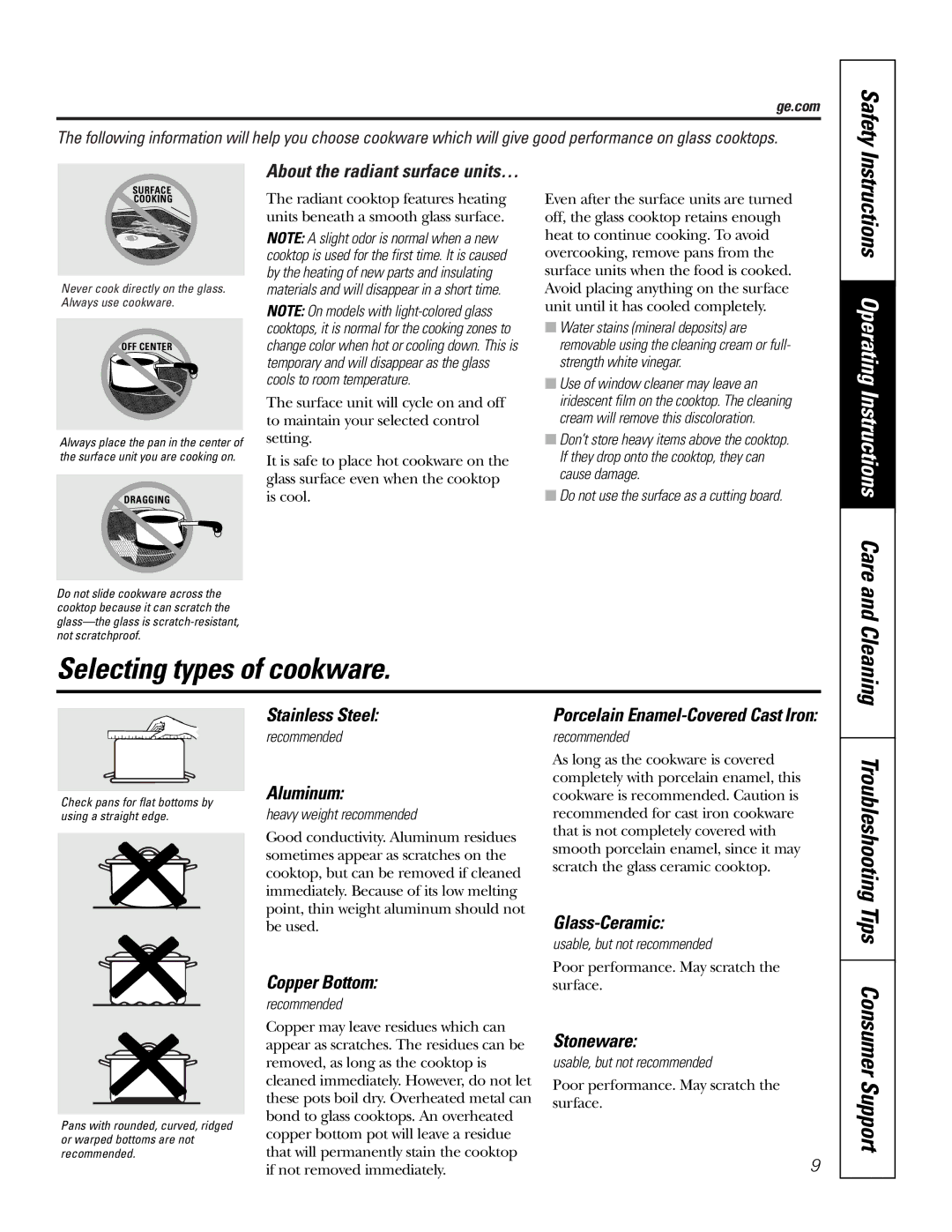JBP89 specifications
The GE JBP89 is an impressive model in the realm of kitchen appliances, particularly designed to enhance the cooking experience for home chefs. This versatile range combines advanced features with user-friendly technology, making it a favored choice for many households.One of the standout features of the GE JBP89 is its capacity. The range typically features a generous oven capacity that allows users to cook multiple dishes simultaneously. This is particularly beneficial during family gatherings or holiday celebrations where cooking large meals is often necessary.
The GE JBP89 incorporates an advanced cooking technology known as True European Convection. This system ensures that heat circulates evenly throughout the oven, leading to perfectly baked cakes, roasts, and casseroles. It significantly reduces cooking times and enhances food texture, making it easier for home cooks to achieve professional-level results.
Another remarkable aspect is the dual-fuel capability. Users can enjoy the combination of gas cooking and electric baking, offering the best of both worlds. Gas burners provide precise temperature control while the electric oven guarantees even cooking results. This combination makes the GE JBP89 an excellent option for those who appreciate the culinary flexibility.
User-friendly controls are a hallmark of the GE JBP89. The range often features a digital display and easy-to-use knobs that allow for quick adjustments to temperature and cooking modes. Many models also boast programmable settings and timers, enabling users to customize their cooking experience effortlessly.
Additionally, the range is equipped with safety features, such as an automatic shut-off system and child locks, providing peace of mind for families with children. Self-cleaning options further enhance convenience, allowing busy cooks to spend less time on maintenance and more time enjoying their culinary creations.
The design of the GE JBP89 is another noteworthy characteristic. With sleek lines and a modern aesthetic, it fits seamlessly into any kitchen decor. The high-quality materials not only ensure durability but also lend a professional appearance.
In summary, the GE JBP89 is a multifaceted kitchen appliance that excels in performance, safety, and aesthetics. Its blend of advanced technologies, generous capacity, and user-friendly features positions it as a prime choice for anyone looking to elevate their cooking experience. With the GE JBP89, home chefs can enjoy the benefits of professional-grade cooking without leaving the comfort of their homes.

